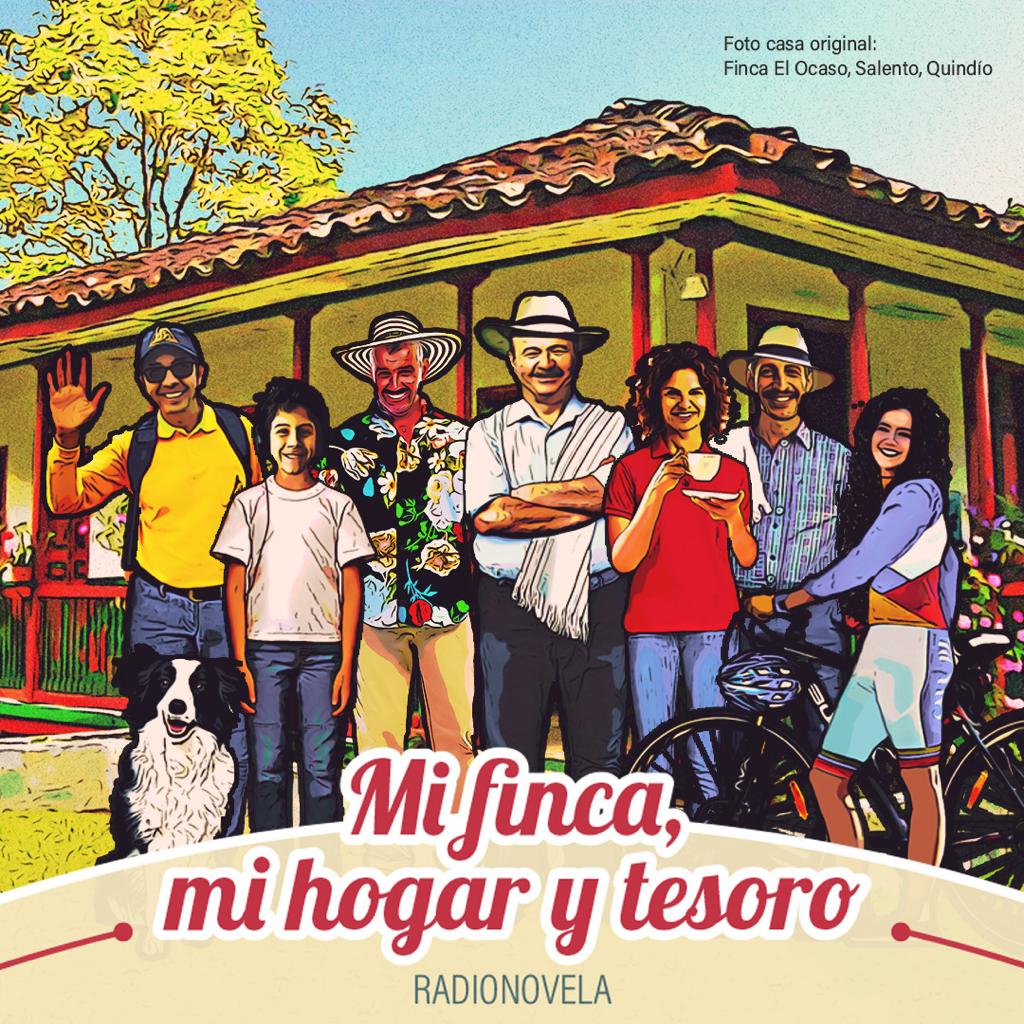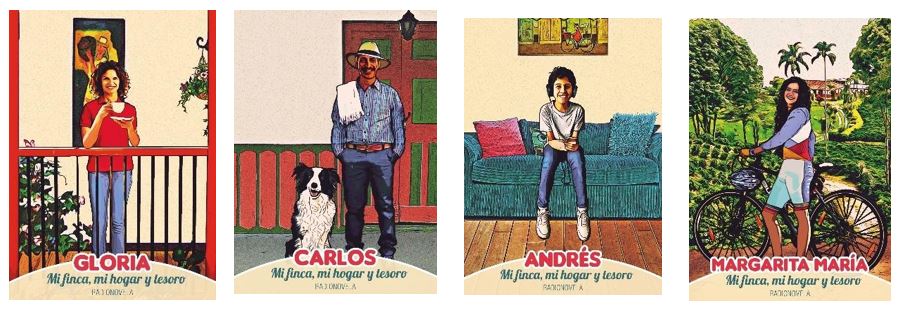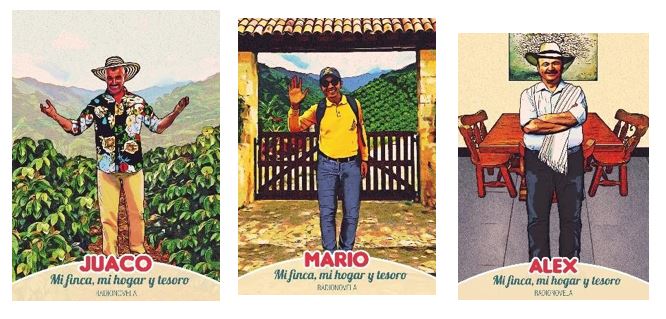My farm, my home and treasure
- In order to promote topics related to occupational health and safety and prevention of child labor, in partnership with Colombia’s Ministry of Labor, the ILO, and the NGO Colombia Avanza, of Partners of the Americas.
- The trust put by the donors for making the radio soap opera My farm, my home and treasure confirms the FNC as a strategic partner of regional, national and international players, given its presence in 603 municipalities of the country and its constant work for Colombian coffee-growing families’ well-being.

Bogotá, October 7, 2020 (FNC Press Office) – In order to promote topics related to occupational safety and health and prevention of child labor among coffee growers, the Colombian Coffee Growers Federation (FNC) has just launched its new radio soap opera My farm, my home and treasure (Mi finca, mi hogar y tesoro).
This important project arrives in partnership with Colombia’s Ministry of Labor, the International Labor Organization (ILO), and the NGO Colombia Avanza, of Partners of the Americas.
The FNC went back to this important format given the rural communities’ preference for the radio. Currently, in addition to social media, a good part of the educational content received by producer families is broadcast through about 70 radio programs in the different coffee departments.
The radio soap opera allows recreating daily, common moments in an easy language to convey a clear educational message.
The trust put by the donors for making the radio soap opera My farm, my home and treasure confirms the FNC as a strategic partner of regional, national and international players, given its presence in 603 municipalities of the country and its constant work for Colombian coffee-growing families’ well-being.
The joint work in particular with the Ministry of Labor and the ILO encourages Colombian coffee growers to comply with occupational safety and health (OSH) standards that are a must within the framework of Resolution 312 of 2019.
And with the NGO Colombia Avanza, of Partners of the Americas, the FNC has been working on joint actions since December 28, 2018, so that civil society understands and addresses child labor and acceptable working conditions in Colombian coffee farming.
Biosafety, disease prevention, health promotion, prevention of accidents and occupational diseases on coffee farms, generational integration, what is and what is not child labor, and dangerous activities that children should not do, among others, are the topics that the radio soap opera – in principle scheduled for 18 episodes – will address.

The story takes place in a town of rural Colombia, where the Osorio Martínez family lives different situations around coffee farming. Carlos and Gloria, along with their children Margarita María and Andrés, share these moments with their closest neighbors, Aunt Magola and her only, spoiled heir Alex.
There is also Juaco, their lifelong coastal friend, who, like Carlos, came to these lands as a coffee collector. The radio soap opera would not be complete without the family friend, Mario (the FNC’s helpful extension agent), and Cumbia, their beautiful pet.
My farm, my home and treasure will accompany the coffee-growing families through the FNC radio programs, which reach all the coffee departments, its different social media, and the SoundClound and YouTube channels.

About Partners of the Americas
An NGO based in Washington D.C., USA, and founded in 1964 with the aim of creating regional social development cooperation ties with the countries of the American continent. In Colombia, the NGO has been present for over 50 years, developing education exchange programs to fight child labor and promote youth leadership, agriculture and food security. This project is funded by the US Department of Labor under cooperation agreement IL-31475-17-75-K; 100% of the cost of the project is financed with federal funds, for a total of USD 2m.
About the International Labor Organization
As the only tripartite agency of the UN, the ILO brings together governments, employers and workers from 187 states to set labor standards, formulate policies, and develop programs that promote decent work for all: women and men. The main objectives of the ILO are to promote labor rights and decent work opportunities, improve social protection, and strengthen dialogue when addressing work-related issues.

